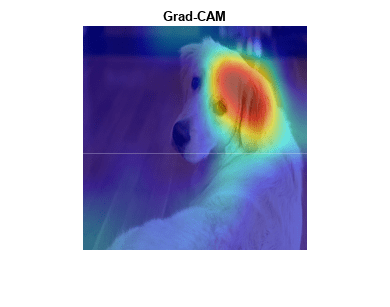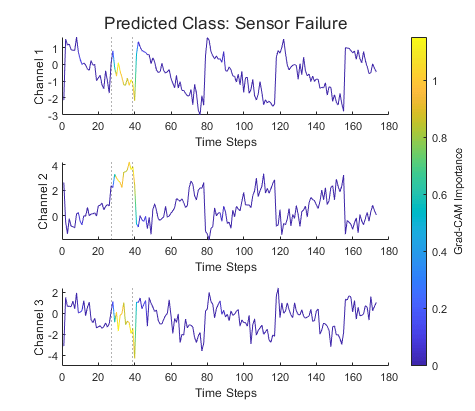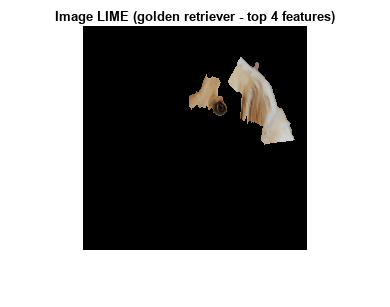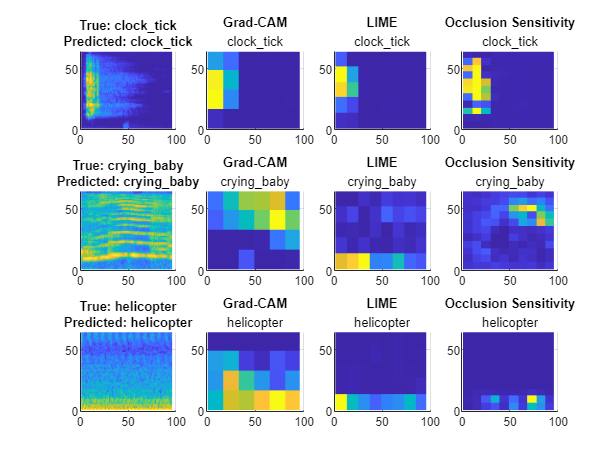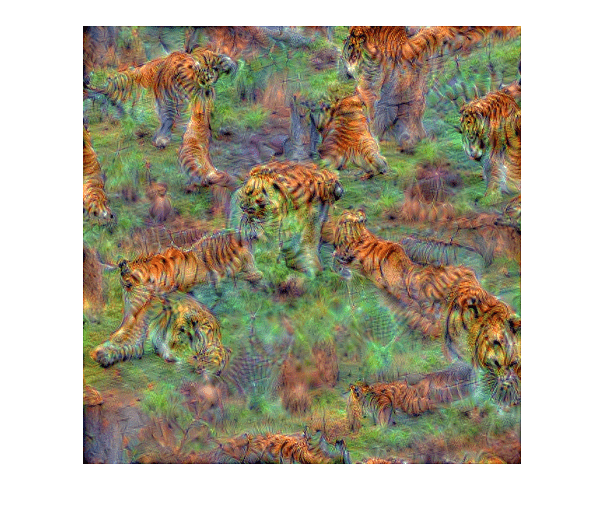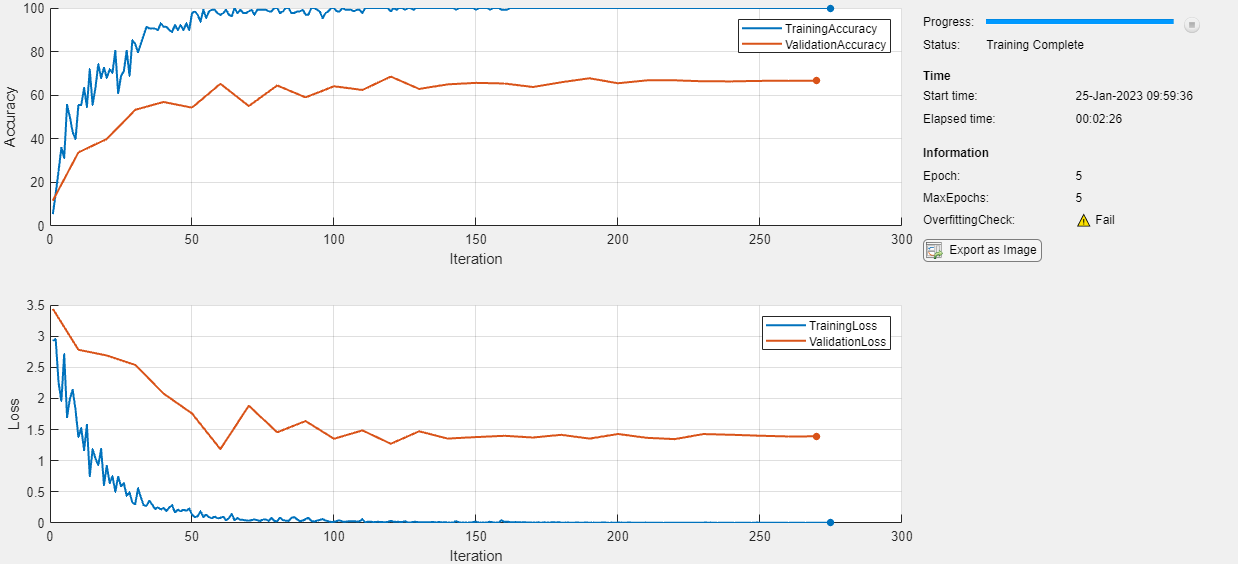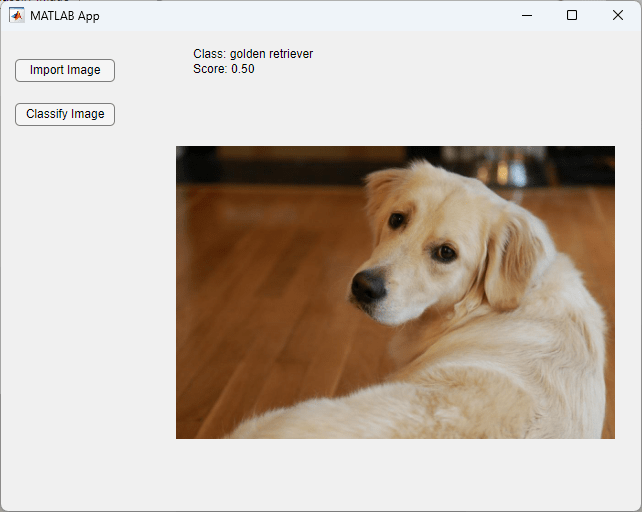可视化和可解释性
绘制训练进度、评估准确度、解释预测以及将网络学习的特征可视化
使用内置的网络准确度和损失图监控训练进度。使用可视化方法,如 Grad-CAM、遮挡敏感度、LIME 和 Deep Dream,研究经过训练的网络。
深度学习可视化方法
App
| 深度网络设计器 | 设计和可视化深度学习网络 |
对象
trainingProgressMonitor | Monitor and plot training progress for deep learning custom training loops (自 R2022b 起) |
函数
属性
| ConfusionMatrixChart Properties | Confusion matrix chart appearance and behavior |
| ROCCurve Properties | Receiver operating characteristic (ROC) curve appearance and behavior (自 R2022b 起) |
主题
训练进度和性能
- 监控深度学习训练进度
此示例说明如何监控深度学习网络的训练进度。 - Monitor Custom Training Loop Progress
Track and plot custom training loop progress. - Monitor GAN Training Progress and Identify Common Failure Modes
Learn how to diagnose and fix some of the most common failure modes in GAN training. - ROC Curve and Performance Metrics
Userocmetricsto examine the performance of a classification algorithm on a test data set. - Compare Deep Learning Models Using ROC Curves
This example shows how to use receiver operating characteristic (ROC) curves to compare the performance of deep learning models. - Define Custom Metric Function
Define custom deep learning metrics using functions. - Define Custom Deep Learning Metric Object
Learn how to define custom deep learning metrics using custom classes. - Define Custom Metric Object
This example shows how to define a custom metric for deep learning tasks. - Deep Learning Metrics
Comparison of metrics for deep learning tasks.
可解释性
- Explore Network Predictions Using Deep Learning Visualization Techniques
This example shows how to investigate network predictions using deep learning visualization techniques. - Understand Network Predictions Using Occlusion
This example shows how to use occlusion sensitivity maps to understand why a deep neural network makes a classification decision. - Interpret Deep Network Predictions on Tabular Data Using LIME
This example shows how to use the locally interpretable model-agnostic explanations (LIME) technique to understand the predictions of a deep neural network classifying tabular data. - Investigate Spectrogram Classifications Using LIME
This example shows how to use locally interpretable model-agnostic explanations (LIME) to investigate the robustness of a deep convolutional neural network trained to classify spectrograms. - Investigate Classification Decisions Using Gradient Attribution Techniques
This example shows how to use gradient attribution maps to investigate which parts of an image are most important for classification decisions made by a deep neural network. - 使用类激活映射调查网络预测
此示例说明如何使用类激活映射 (CAM) 来调查和解释用于图像分类的深度卷积神经网络的预测。 - Visualize Image Classifications Using Maximal and Minimal Activating Images
This example shows how to use a data set to find out what activates the channels of a deep neural network. - View Network Behavior Using tsne
This example shows how to use thetsnefunction to view activations in a trained network. - 可视化 LSTM 网络的激活值
此示例说明如何通过提取激活值来调查和可视化 LSTM 网络学习到的特征。 - 可视化卷积神经网络的激活
此示例说明如何将图像馈送到卷积神经网络并显示网络的不同层的激活。通过将激活区域与原始图像进行比较,检查激活并发现网络学习的特征。发现较浅层中的通道学习颜色和边缘等简单特征,而较深层中的通道学习眼睛等复杂特征。以这种方式识别特征可以帮助您了解网络学习的内容。 - 可视化卷积神经网络的特征
此示例说明如何可视化卷积神经网络学习的特征。 - Deep Learning Visualization Methods
Learn about and compare deep learning visualization methods.


